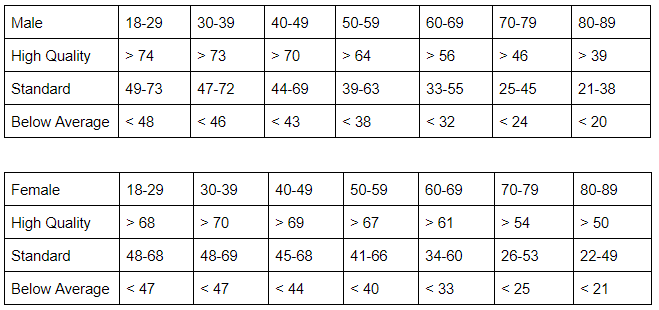
Maintaining a healthy weight is crucial for overall well-being and quality of life. Weight management involves a combination of healthy eating, regular physical activity, and lifestyle changes to achieve and maintain a desirable weight. In this article, we will delve into the various aspects of weight management, exploring the importance of understanding weight, factors that influence weight, effective strategies for weight management, and the benefits of seeking professional help.
Understanding Weight
Body Mass Index (BMI)
Body Mass Index (BMI) is a commonly used measurement to assess whether an individual's weight is within a healthy range based on their height. By calculating BMI using a simple formula (weight in kilograms divided by height in meters squared), individuals can determine if they are underweight, normal weight, overweight, or obese. It is important to note that while BMI provides a general indication of weight status, it does not account for differences in body composition.
Body Composition
Body composition refers to the breakdown of an individual's body weight into fat mass and lean mass. While fat mass is often associated with excess weight, lean mass, which includes muscle, bones, and organs, plays a crucial role in metabolism and overall health. Increasing muscle mass through strength training can help enhance weight management efforts by boosting metabolism and promoting fat loss.

Factors Affecting Weight
Diet
Diet plays a significant role in weight management, as the number of calories consumed versus the number of calories burned determines weight gain or loss. Understanding the role of macronutrients (carbohydrates, protein, and fats) in the diet is essential for creating a balanced eating plan that supports weight management goals. Monitoring portion sizes, choosing nutrient-dense foods, and staying hydrated are key components of a healthy diet for weight management.
Physical Activity
Regular physical activity is essential for weight management as it helps burn calories, build muscle, and improve overall fitness. Different types of exercises, including cardiovascular activities, strength training, and flexibility exercises, offer diverse benefits for weight loss and maintenance. Incorporating a mix of aerobic and resistance training into a workout routine can enhance the body's ability to manage weight effectively.

Genetics
Genetics can play a role in determining an individual's predisposition to weight gain or obesity. Certain genetic factors influence metabolism, fat storage, and appetite regulation, making some individuals more susceptible to weight-related issues. While genetics may affect weight to some extent, lifestyle choices such as diet and exercise can help mitigate genetic influences on weight management.
Strategies for Weight Management
Healthy Eating Habits
Adopting healthy eating habits is vital for successful weight management. Practicing portion control, including a variety of fruits and vegetables in meals, and balancing macronutrients can support weight loss efforts. Choosing whole, unprocessed foods, cooking at home, and mindful eating practices can help individuals make sustainable dietary changes for long-term weight management.

Regular Exercise Routine
Creating a consistent exercise routine is key to achieving and maintaining a healthy weight. Incorporating a mix of aerobic exercises like walking, running, or cycling, along with strength training exercises, can help burn calories, build muscle, and improve overall fitness. Consistency in workouts is essential for seeing progress and sustaining weight loss over time.

Behavior Modification
Changing behaviors associated with eating and physical activity is crucial for successful weight management. Practicing mindful eating, avoiding emotional eating, and managing stress can help individuals develop a healthier relationship with food and improve their overall well-being. Building healthy habits and routines that support weight management goals is essential for long-term success.
Seeking Professional Help
Consulting a Healthcare Provider
Seeking guidance from a healthcare provider or nutritionist can provide valuable support for weight management efforts. Medical professionals can assess individual health needs, offer personalized recommendations, and monitor progress to ensure safe and effective weight loss. In some cases, medical interventions such as medications or surgical procedures may be recommended for managing weight.
Support Groups
Joining a weight loss support group can provide a sense of community, motivation, and accountability for individuals on their weight management journey. Connecting with others who share similar goals, challenges, and experiences can offer encouragement, tips, and emotional support throughout the weight loss process. Support groups can help individuals stay motivated and committed to their weight management goals.
Conclusion
Weight management is a multifaceted process that requires a combination of healthy eating, regular exercise, behavior modification, and professional guidance. By understanding weight, addressing factors that influence weight, implementing effective strategies, and seeking support when needed, individuals can achieve and maintain a healthy weight. Remember that progress takes time, consistency, and dedication, but the rewards of improved health and well-being make the journey worthwhile. Take the first step today towards your weight management goals and embrace a healthier lifestyle for a brighter tomorrow.
FAQs
Q: What is Body Mass Index (BMI) and why is it important for weight management?
A: Body Mass Index (BMI) is a measurement used to assess whether an individual's weight is within a healthy range based on their height. It is important for weight management as it helps determine if a person is underweight, normal weight, overweight, or obese.
Q: How can genetics influence weight management?
A: Genetics can play a role in determining an individual's predisposition to weight gain or obesity. Certain genetic factors can affect metabolism, fat storage, and appetite regulation, making some individuals more susceptible to weight-related issues.
Q: What are some effective strategies for weight management?
A: Adopting healthy eating habits, creating a regular exercise routine, and practicing behavior modification such as mindful eating and stress management are effective strategies for weight management.
Q: Why is seeking professional help important in weight management?
A: Seeking guidance from healthcare providers or nutritionists can provide personalized recommendations, monitor progress, and offer medical interventions when necessary, ensuring safe and effective weight management.
Q: How can joining a weight loss support group benefit individuals on their weight management journey?
A: Joining a weight loss support group can provide a sense of community, motivation, and accountability, offering encouragement, tips, and emotional support to individuals striving to achieve their weight management goals.


0 Comments